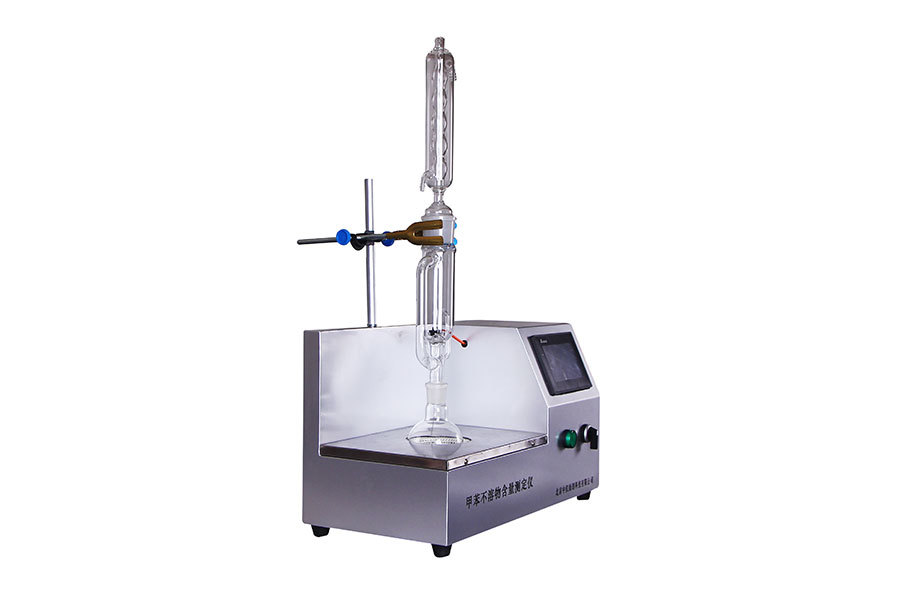Understanding the Importance of Fully Automatic Asphalt Softening Point Testers in Construction
Aug 10,2025

In the construction industry, particularly in the realm of electrical engineering and specialized instrumentation, ensuring the quality of materials is paramount. One such material that frequently undergoes rigorous testing is asphalt, commonly used in road construction and paving. The fully automatic asphalt softening point tester plays a crucial role in this process, serving as a reliable instrument for assessing the softening point of asphalt binders.
The softening point of asphalt is the temperature at which the asphalt transitions from a solid to a viscous state. This property is critical because it influences the performance of asphalt in varying temperatures and environmental conditions. For example, asphalt with a low softening point may soften too much in hot weather, leading to deformation and ruts in the pavement. Conversely, asphalt with a high softening point may become too brittle in cold conditions, resulting in cracks.
The fully automatic asphalt softening point tester automates the process of determining this important parameter. Unlike manual testing methods, which can be time-consuming and prone to human error, an automatic tester provides consistent and accurate results. This efficiency is especially beneficial in laboratories and quality control environments where multiple samples need testing.
The operation of a fully automatic asphalt softening point tester typically involves heating a sample of asphalt in a controlled environment while monitoring the temperature at which the sample begins to flow. Advanced models may integrate digital displays and software that record data for analysis, further reducing the chances of error and allowing for easier interpretation of results.
Moreover, the significance of using a fully automatic tester extends beyond mere convenience. Ensuring accurate measurements of the softening point is crucial for meeting industry standards and specifications, which in turn affect the durability and longevity of paved surfaces. This connection highlights the importance of investing in high-quality testing equipment, as the right tools directly contribute to the safety and reliability of infrastructure projects.
In summary, the fully automatic asphalt softening point tester is an indispensable tool in the construction industry, enhancing the testing process for asphalt materials. By providing precise measurements and reducing the potential for human error, these devices play a vital role in maintaining the quality and performance of asphalt used in various applications. Understanding the functionalities and advantages of such equipment allows professionals in the field to make informed decisions and uphold high standards in material testing. As the industry continues to evolve, the reliance on advanced testing technologies like the fully automatic asphalt softening point tester will only increase, paving the way for safer and more durable construction practices.
The softening point of asphalt is the temperature at which the asphalt transitions from a solid to a viscous state. This property is critical because it influences the performance of asphalt in varying temperatures and environmental conditions. For example, asphalt with a low softening point may soften too much in hot weather, leading to deformation and ruts in the pavement. Conversely, asphalt with a high softening point may become too brittle in cold conditions, resulting in cracks.
The fully automatic asphalt softening point tester automates the process of determining this important parameter. Unlike manual testing methods, which can be time-consuming and prone to human error, an automatic tester provides consistent and accurate results. This efficiency is especially beneficial in laboratories and quality control environments where multiple samples need testing.
The operation of a fully automatic asphalt softening point tester typically involves heating a sample of asphalt in a controlled environment while monitoring the temperature at which the sample begins to flow. Advanced models may integrate digital displays and software that record data for analysis, further reducing the chances of error and allowing for easier interpretation of results.
Moreover, the significance of using a fully automatic tester extends beyond mere convenience. Ensuring accurate measurements of the softening point is crucial for meeting industry standards and specifications, which in turn affect the durability and longevity of paved surfaces. This connection highlights the importance of investing in high-quality testing equipment, as the right tools directly contribute to the safety and reliability of infrastructure projects.
In summary, the fully automatic asphalt softening point tester is an indispensable tool in the construction industry, enhancing the testing process for asphalt materials. By providing precise measurements and reducing the potential for human error, these devices play a vital role in maintaining the quality and performance of asphalt used in various applications. Understanding the functionalities and advantages of such equipment allows professionals in the field to make informed decisions and uphold high standards in material testing. As the industry continues to evolve, the reliance on advanced testing technologies like the fully automatic asphalt softening point tester will only increase, paving the way for safer and more durable construction practices.
PREVIOUS:
Contact Us








